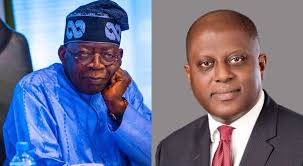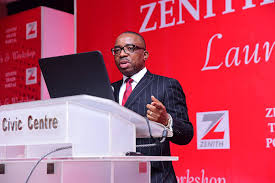Financial experts have assessed the fiscal and monetary policies implemented during President Tinubu’s first year in office, concluding that these measures have resulted in macroeconomic instability.
Following his inauguration as the 16th President of Nigeria at Eagle Square, Abuja, President Bola Tinubu announced the removal of the fuel subsidy.
Subsequently, he unified the foreign exchange markets, marking a significant shift from the policies of the previous administration.
These initiatives were intended to enhance the Naira’s competitiveness against the Dollar and reduce foreign exchange market volatility.
In their review, experts criticized the abrupt removal of the fuel subsidy, stressing the necessity for meticulous planning and expert forecasts to mitigate the consequences and address infrastructure deficiencies.
They also noted that the inadequate sequencing and management of fiscal and monetary policies have contributed to rising inflation, a depreciating Naira, and diminished consumer purchasing power.
Furthermore, the experts highlighted that Nigeria’s economic policies have not succeeded in stimulating production and trade.
They pointed out that the current monetary policy favors debt investors at the expense of the productive sector, and ongoing cash management inefficiencies are further contributing to macroeconomic instability.
Some fiscal and monetary policies
Within his first year in office, President Tinubu’s administration established a fiscal policy and tax reform committee.
This committee is tasked with conducting a comprehensive review of existing fiscal policies and tax frameworks to simplify laws and enhance investor accessibility and understanding of Nigeria’s fiscal and tax systems.
The committee, chaired by Taiwo Oyedele, former Fiscal Policy Partner and Africa Tax Leader at PriceWaterhouseCoopers (PwC), aims to develop practical and cost-effective solutions to several critical issues.
These include the multiplicity of revenue collection agencies, the high cost of revenue administration, the excessive compliance burden on ordinary taxpayers, the lack of effective coordination between fiscal and other economic policies at various government levels, and poor accountability in the utilization of tax revenues.
The Central Bank of Nigeria (CBN) implemented significant policy changes impacting the foreign exchange markets and the financial services sector.
The CBN has focused on inflation targeting using traditional monetary policy instruments and maintaining financial system stability as its stated policy direction.
Under the Tinubu administration, the Monetary Policy Committee (MPC) of the CBN raised the monetary policy rate (MPR) from 18.5% to 18.75% on July 25, 2023, shortly after taking office on May 29, 2023. In May 2024, the MPR was further increased to 26.25%.
Impact of the policies
As Nigeria commemorates one year under the new administration, the nation faces significant economic challenges. Key indicators have deteriorated, with a notable surge in inflation and a rapid devaluation of the Naira.
The removal of the fuel subsidy and the liberalization of the foreign exchange market have intensified these issues. The Naira, previously trading at N460/USD, has depreciated to approximately N1500/USD, even surpassing N1600/USD in the official market by March 2024. This devaluation represents a loss of approximately 70% of its value within a year.
In response to rising inflation, the Central Bank of Nigeria (CBN) has increased the Monetary Policy Rate (MPR) four times over the past year, leading to higher interest rates. Despite these measures, inflation remains a significant concern, influenced by insecurity, poor transport infrastructure, a challenging business environment, and regional conflicts, all contributing to substantial headline and food inflation.
The interplay of these policy decisions and external factors has created a difficult economic landscape for Nigeria, underscoring the need for continued efforts to stabilize the economy and address structural issues.
Performance review by experts
In an interview on Arise Television, lawyer and economic analyst Mr. Eze Onyekwere highlighted that the main challenge with the Nigerian economy over the past one year has been the sequencing and management of policies.
Onyekwere pointed out that President Tinubu’s announcement from Eagle Square regarding the removal of the subsidy was made at a time when he had no advisors or ministers in place.
He criticized the impulsiveness of such a significant policy announcement, emphasizing that it requires careful planning and expert projections.
“If the subsidy is removed, what are the expected outcomes? What measures will be implemented to mitigate the impact?”
Onyekwere questioned, stressing that these should have been planned and executed from the beginning, not a year later.
He also highlighted the inadequacy of infrastructure for the transition to CNG vehicles, noting that while the NNPC may have a few stations in Abuja or Lagos, the lack of broader coverage makes the transition impractical.
Onyekwere expressed concerns about the implementation of policies without thorough consideration, oversight, and opportunities for course correction. He argued for the need for flexibility to adjust policies when challenges arise.
He also criticized the official inflation figures from agencies like the NBS, arguing that they do not reflect the reality faced by Nigerians.
He cited the example of a bag of rice, which has skyrocketed from about 30,000 to 80,000 or 90,000 Naira, far exceeding the reported 30% increase, indicating a significant underestimation of inflation.
Despite promises to halt ways and means practices, Onyekwere noted their continuation. He advocated for a committee comprising fiscal, monetary, and trade policy experts to regularly review and harmonize policies for the betterment of the economy.
Analyst and Head of Research at FSL Securities Limited, Mr. Victor Chiazor in an exclusive interview with Business Nexus, reviewed the first year of the Tinubu administration, highlighting the impact of various government policies on the economy.
Chiazor noted that the policies implemented by both fiscal authorities and monetary policymakers have led to a depreciation of the Naira, adversely affected businesses, increased inflationary pressures, and weakened consumer purchasing power.
While acknowledging that some policies were well-intentioned, Chiazor criticized the timing and lack of foundational support necessary for their success.
“The timing has been wrong, and the foundation needed for such policies to flourish was never put in place before these policies were implemented,” he stated.
Looking ahead, Chiazor emphasized the need for a more strategic and coordinated approach to fiscal and monetary policies. He suggested that a unified strategy, rather than isolated efforts, is crucial for achieving a sustainable economy.
Vice Chairman of the Board at Highcap Securities Limited, David Adonri expressed concerns over Nigeria’s economic policies, highlighting that fiscal measures aimed at boosting production and trade have not yielded significant improvements over the past year.
According to Adonri, both agricultural and industrial production have stagnated, which has contributed to the nation’s rising inflation. He noted that trade policies have been more focused on generating government revenue rather than facilitating trade.
Adonri also pointed out that monetary policy has been contractionary over the past year. While this approach has benefited debt investors through interest rate hikes, it has come at a substantial cost to the productive sector.
He further criticized the state of the foreign exchange market, which he described as inadequately deregulated and lacking a unified clearance rate.
“Cash management inefficiencies have exacerbated the economic situation, with many bank ATMs failing to dispense cash and lower denomination currencies often found in poor condition.
This scenario has created macroeconomic disharmony, with an expansionary fiscal policy conflicting with the contractionary monetary policy,” he said.
Additionally, he noted that there are reports suggesting that Ways and Means Advances to the Federal Government of Nigeria have continued unabated, further complicating the economic landscape.





